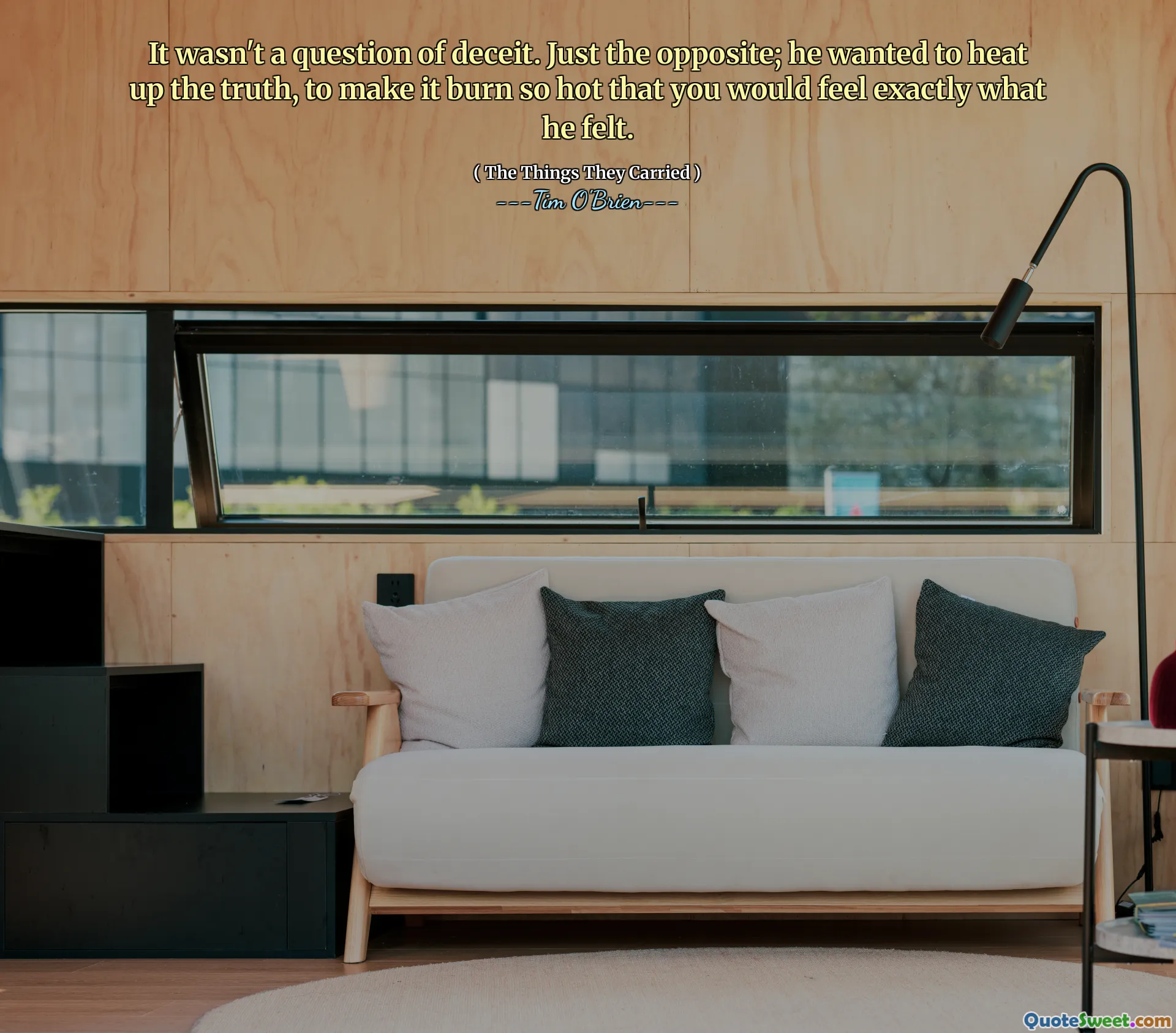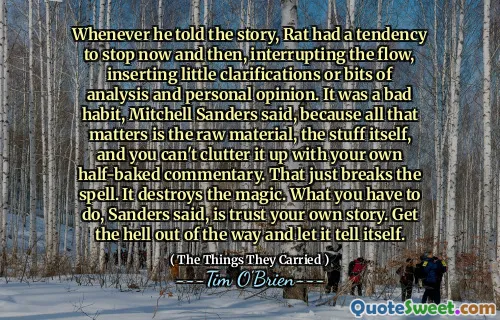
It wasn't a question of deceit. Just the opposite; he wanted to heat up the truth, to make it burn so hot that you would feel exactly what he felt.
This quote from Tim O'Brien's 'The Things They Carried' explores the complex relationship between truth and perception. The notion of 'heating up' the truth suggests a desire to intensify reality, to distill it into something visceral and undeniable. It reflects a powerful human tendency to crave authenticity—an urge to not just know facts objectively, but to experience them subjectively. In the context of storytelling, especially war narratives, this approach emphasizes the importance of emotional truth over mere factual accuracy; it's about capturing the essence of feelings, fears, and moral dilemmas that define human experiences in extreme circumstances. The author seems to challenge the reader to embrace discomfort as a pathway to deeper understanding, implying that confronting raw, untamed truths is essential for empathy and insight. Moreover, this statement underscores how stories can be crafted not just to inform but to evoke visceral reactions, forging a connection that transcends simple narration. It prompts reflection on how our own perceptions are shaped by the intensity with which truths are presented, and whether sometimes, embellishing or dramatizing aspects of reality can serve a higher purpose—bridging the gap between mere facts and profound human experience. Ultimately, the quote encapsulates the idea that genuine understanding often requires a catalyst—something intense enough to ignite empathy and allow us to truly 'feel' what others have endured, thereby transforming passive knowledge into active emotional engagement.








